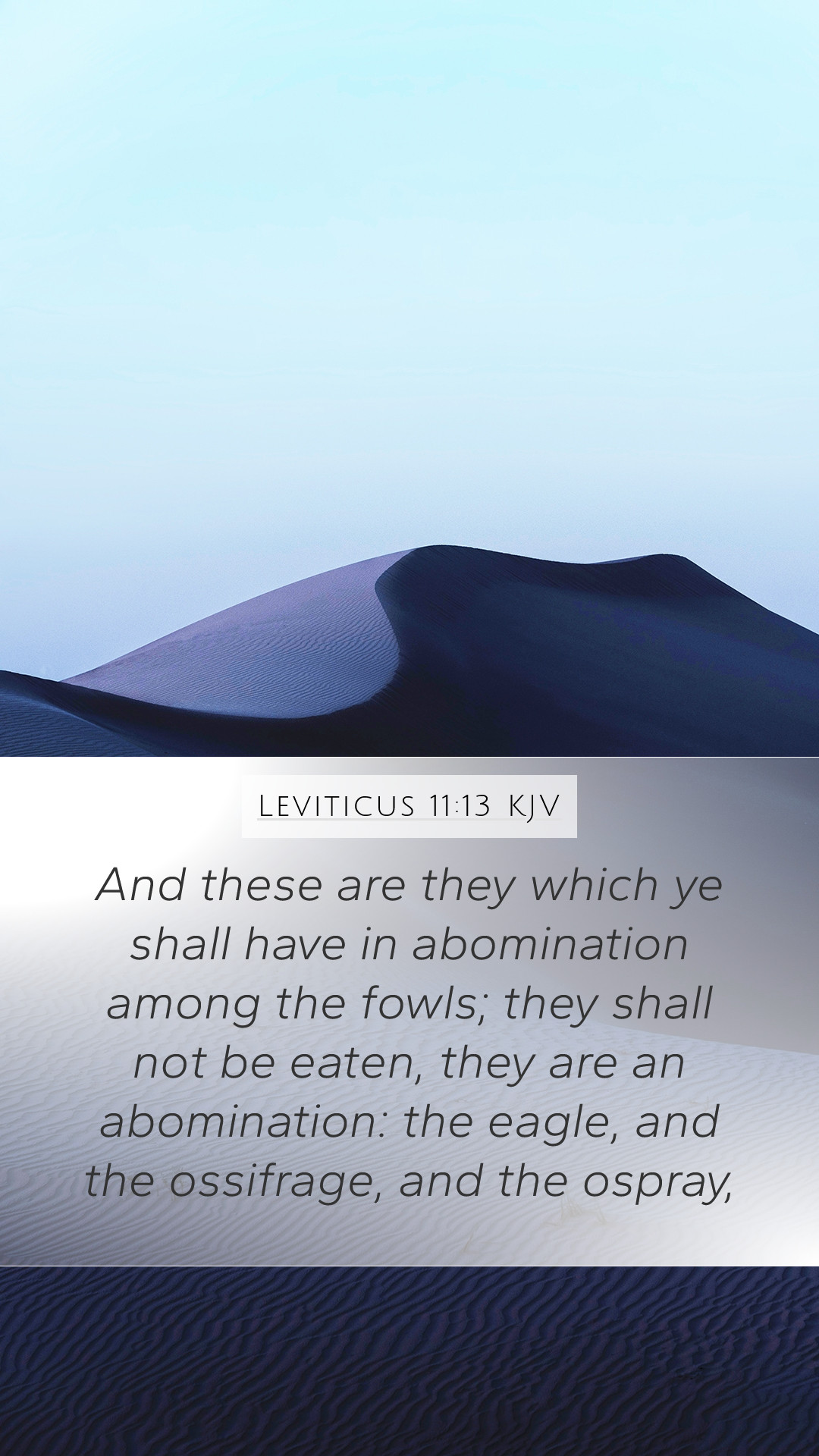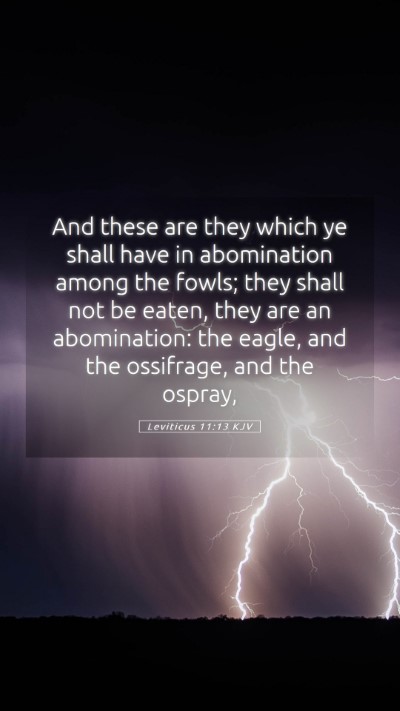Understanding Leviticus 11:13
Bible Verse: Leviticus 11:13 - "And these are they which ye shall have in abomination among the fowls; they shall not be eaten, they are an abomination: the eagle, and the ossifrage, and the ospray."
Bible Verse Meanings
Leviticus 11:13 provides specific guidelines regarding the dietary laws for the Israelites. Matthew Henry highlights that this regulation reflects the holiness and separateness that God desires from His people. The term "abomination" emphasizes God's disapproval of certain unclean animals, indicating His law's moral and spiritual significance. Albert Barnes explains that these laws served as a means for the Israelites to maintain their identity as God's chosen people and were intended to lead them towards purity and righteousness.
Bible Verse Interpretations
Experts such as Adam Clarke examine the contextual implications of these dietary restrictions. The identification of specific birds as unclean involved practical health concerns, as well as spiritual symbolism. Birds like the eagle often represent pride and domination, whereas others like the ospray are known for their predatory nature. Thus, avoiding these creatures serves to distance God's people from traits associated with moral failure.
Bible Verse Commentary
The commentaries collectively suggest that the instructions in Leviticus 11:13 remind believers today of the importance of obedience to God's commandments. These laws can be seen as foundational for understanding broader biblical themes of separation from sin and the holiness required in a relationship with God.
Key Points from Commentaries
- Obedience to God's Commands: The verse underscores the necessity of adhering to divine guidance as a demonstration of faith.
- Cultural Identity: These dietary laws are tied to the Israelite's distinct identity, serving as a reminder of their covenant with God.
- Spiritual Symbolism: The specified birds illustrate moral and spiritual principles that encourage the pursuit of holiness.
- Health Considerations: Historical and practical aspects of dietary laws provided health benefits to the people.
- Consequences of Non-compliance: Failure to observe these guidelines had implications for spiritual and communal purity.
Biblical Exegesis and Analysis
This verse is a part of a larger section in Leviticus, which details the laws of clean and unclean animals. Understanding this legislation requires examining the cultural context of the Israelites, as well as the intention behind such prohibitions.
Historical Context
During the time of Moses, the Israelites were surrounded by pagan cultures with different practices. The restrictions outlined in Leviticus served to set them apart and remind them of their unique relationship with God. The dietary laws became a tangible aspect of their faith, illustrating God's desire for His people to live holy lives.
Applying Leviticus 11:13 to Daily Life
By reflecting on this verse, believers can draw parallels to modern-day life. Although the specific dietary laws may not apply directly to Christians under the New Covenant, the principle of seeking holiness and making deliberate choices about behavior, lifestyle, and influences remains relevant. This verse serves as an invitation to explore how dietary choices and general life choices reflect our commitment to God and our desire to live according to His will.
Additional Bible Cross References
- Deuteronomy 14:11-20 - Further elaboration on clean and unclean animals.
- Leviticus 20:25-26 - The definition of holiness in relation to dietary laws.
- Matthew 15:11 - Jesus' teaching on what truly defiles a person.
Conclusion
Leviticus 11:13 invites readers to delve into the rich theological and moral implications of God's commands. Through careful analysis and reflection on this verse, believers can gain deeper insights into the importance of maintaining a holy lifestyle that aligns with divine expectations. As one explores the meaning of Bible verses, Bible verse commentary like this verse reveal fundamental truths about identity, obedience, and the pursuit of holiness. This developmental journey of understanding Scripture equips believers to participate in Bible study groups, enriching
their faith through collective insights.


